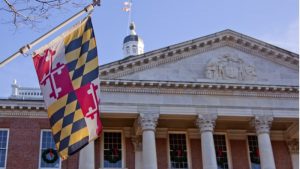Maryland Gov. Wes Moore has announced plans for four major actions that are aimed at transforming digital experience in state government.
Maryland said it will use $69 million in Federal funding to provide internet access for roughly 15,000 underserved Maryland households.
Maryland Gov. Wes Moore announced earlier this month that the state will use $92 million in funding to expand high-speed internet access to an estimated 14,500 households and businesses.
Maryland Gov. Larry Hogan has joined South Dakota Gov. Kristi Noem in banning the popular social media app TikTok. In an emergency directive, Gov. Hogan banned TikTok, as well as other “Chinese and Russian-influenced products and platforms,” from use by the executive branch of state government.
In a bid to improve internet access for underserved households, the Maryland Board of Public Works approved a contract of up to $30 million for the Office of Statewide Broadband to provide laptops for an estimated 150,000 underserved households in the state. The contract is part of the state’s larger Connect Maryland initiative.
As cyberattacks against state and local governments rise, the state of Maryland has hosted a statewide cybersecurity tabletop exercise. The exercise was hosted by the Maryland Department of Emergency Management (MDEM), in coordination with all cabinet-level agencies, and enabled critical partners to discuss plans, policies, and procedures in order to identify and address potential vulnerabilities or issues in preparation for a cybersecurity incident.
Maryland Gov. Larry Hogan announced that applications are now open for $95 million in funding to expand high-speed internet access across the state. The funding will be part of the Connect Maryland Network Infrastructure Grant Program. The Connect Maryland initiative is designed to expand the state’s investment in broadband and help close the digital divide.
Maryland Gov. Larry Hogan has announced more than $127.6 million in broadband grants for local jurisdictions, Internet Service Providers, and community organizations, as well as education-specific grants that will expand infrastructure and provide wireless devices and equipment to Maryland’s K-12 students.
Maryland is now the second state to offer residents the option of storing their digital driver’s license or state ID card in their Apple Wallet, following Arizona.
Maryland Gov. Larry Hogan has submitted a $101.25 million supplemental budget to the General Assembly to expand the state’s cyber readiness and workforce initiative.





